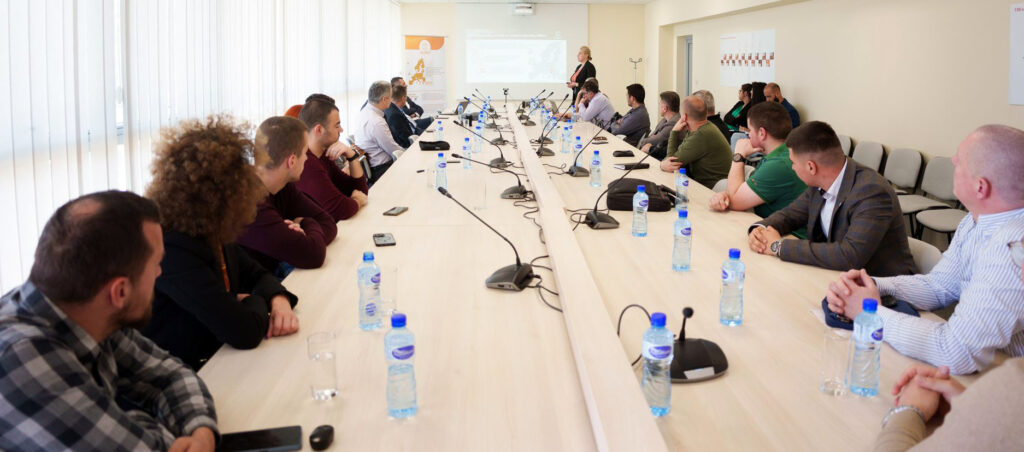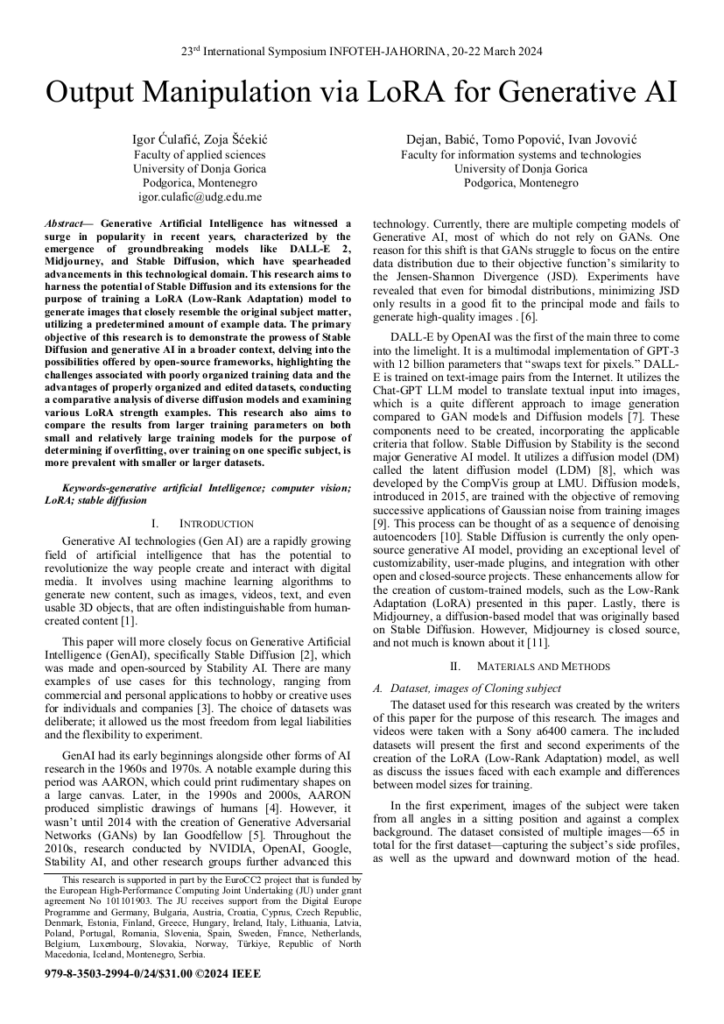NCC Montenegro, in collaboration with Montenegrin National Committee of CIGRE, one of the leading worldwide organizations on electric power systems, successfully organized a collaborative workshop, focusing on opportunities and benefits of HPC and AI complementary technologies in the energy sector, industry best practices and examples of high-fidelity energy metrics modelling. The workshop was attended by approx. 30 participants, academic researchers and industry experts, effectively converging HPC-powered AI research advancements with challenges and opportunities in the energy sector, driven by quality of predictive analytics and sustainability of energy models.
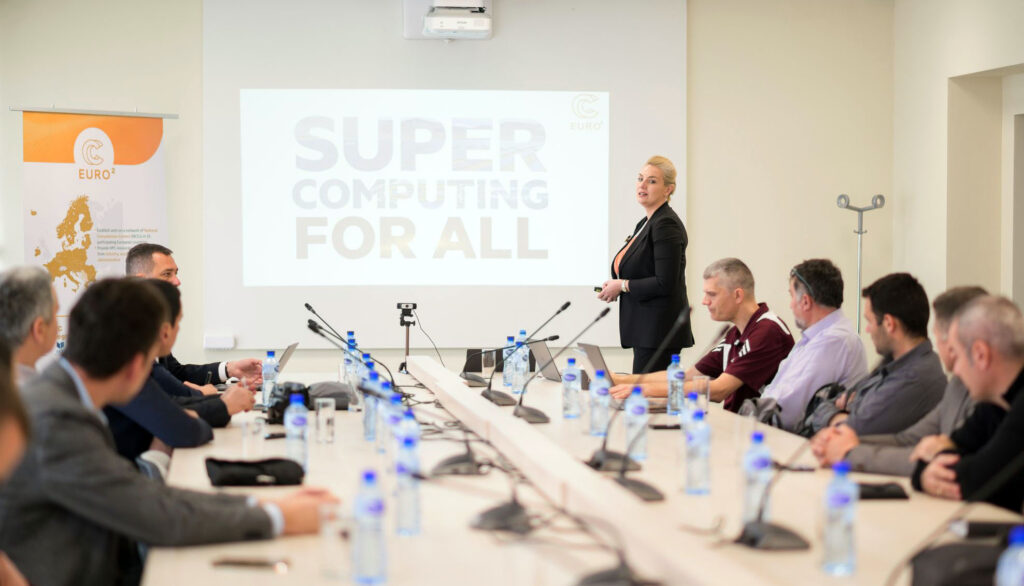
Representatives of HPC National Competence Centre of Montenegro, Sanja Nikolic and Luka Filipovic presented EUROCC2 project, NCC services, EuroHPC infractructure acces, PC4SME assessment tool and research, as well as success stories demonstrating advancements in HPC and AI applications in energy sector.
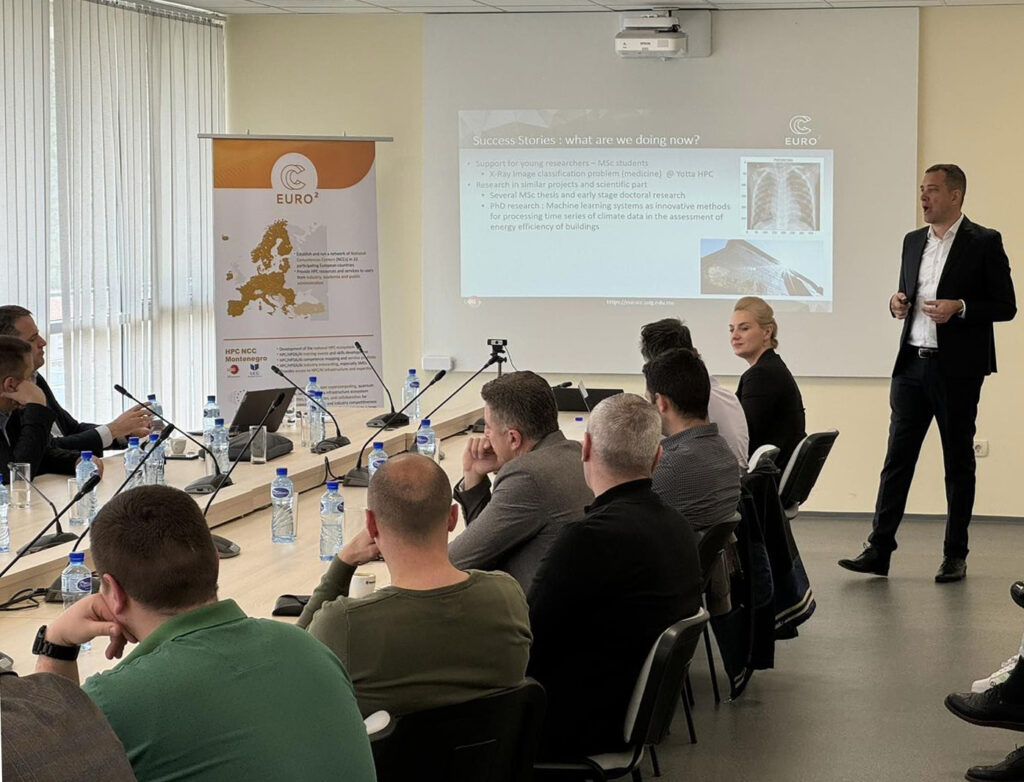
Mr Darko Krivokapić, Executive Director of the Directorate for Energy Management of the Montenegrin Electric Enterprise (EPCG), presented characteristics of Montenegro energy system and challenges of short- and long-term predictions of energy prices and consumption, depending on Montenegrin energy balance, renewable energy sources, weather conditions and trade dynamics/external risks facing electricity wholesale markets.
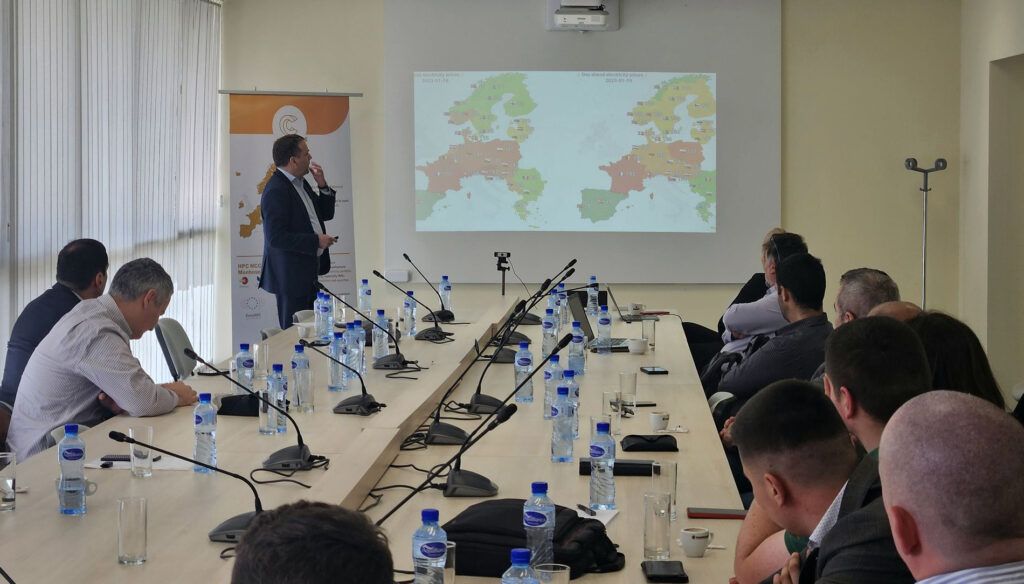
Mr Milutin Pavicevic PhD student@University of Donja Gorica and CEO of Alicorn, presented forecasting day-ahead electricity metrics (prices and loads) with different models of artificial neural networks and its accuracy comparison on the given dataset, elaborating on possible commercial implications in energy sector.
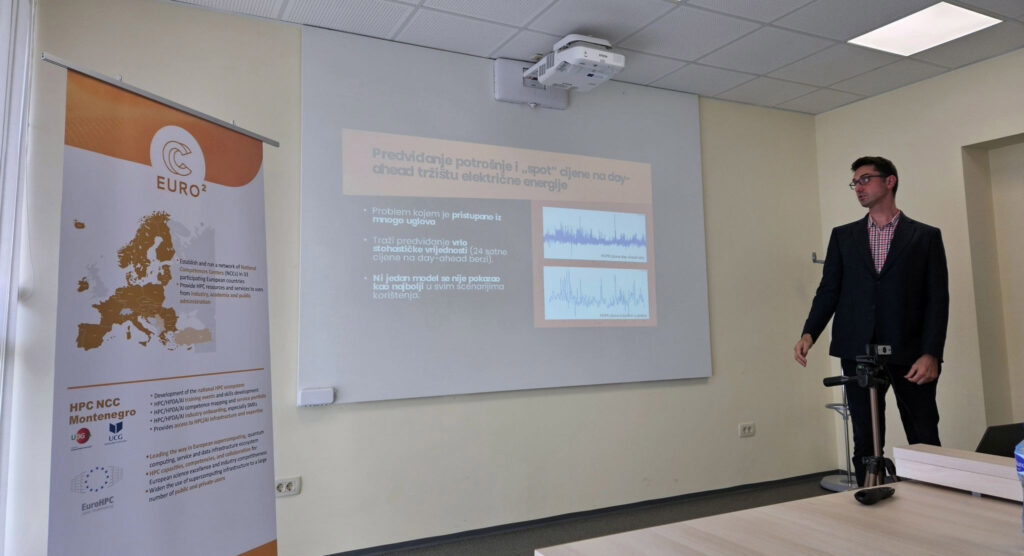
Mr Lazar Scekic, Teaching Assistant @University of Montenegro, introduced the audience with its research work on security challenges of electricity infrastructure (GPS spoofing) and reliable AI methods for the protection of electrical power systems against cyberattacks.
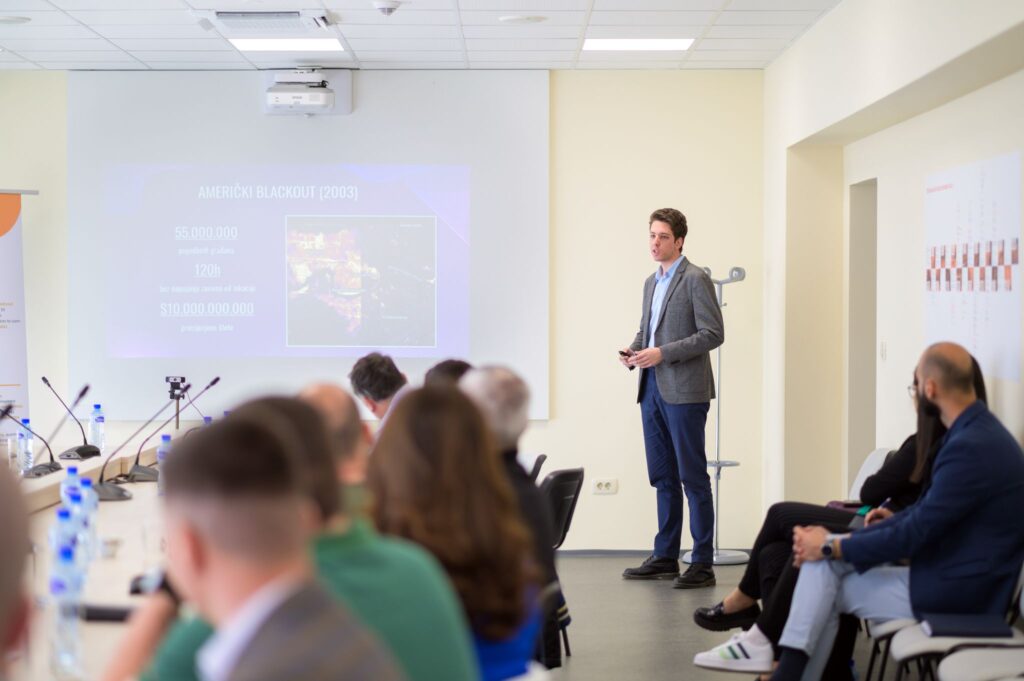
Mr Ivan Vujovic, PhD student @University of Belgrade and CEO of Tering, presented models related to prediction of production and consumption of electrical energy in the electrical system by using recurrent neural networks, discussing quality parameters that determine and improve predictive functioning of energy systems.
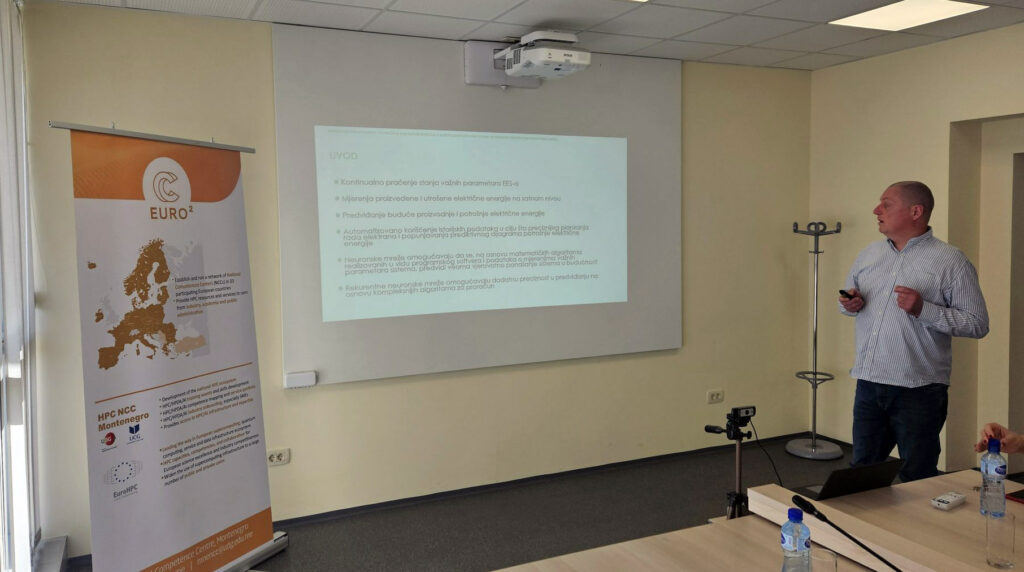
HPC and AI energy workshop enhanced awareness of NCC Montenegro services and EuroHPC infrastructure resources, available free of charge for the Montenegrin industry for the purpose of research, development and innovation.
Intensive discussion and exchange of opinions, expertise and experience between energy systems’ researchers and practitioners, including meteorological professionals also, open possibilities for the productive collaboration on calibrating computationally-demanding AI/ML models for national energy datasets, to improve their learning accuracy, prediction rates and potential of its commercial utilization in the energy system of Montenegro.
